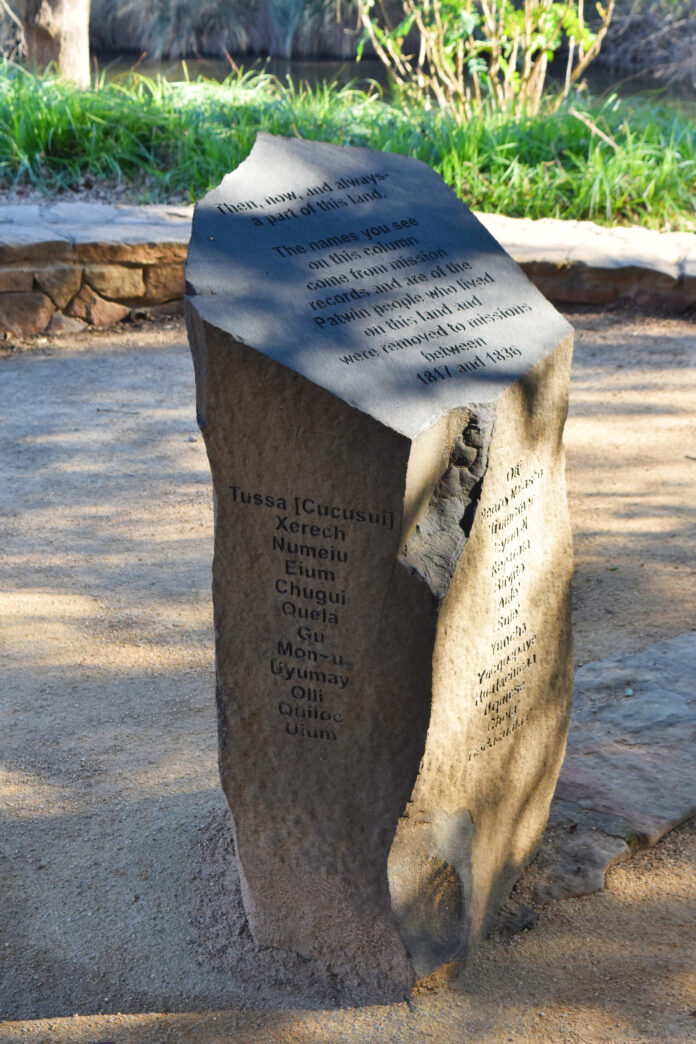It’s important to be aware and respectful of the land you occupy
By YASMEEN O’BRIEN — yjobrien@ucdavis.edu
“Patwin” means “person” or “the people” in the Patwin language. The name was given to the subgroup of northern-dwelling Wintun in 1877 by American reporter and ethnographer Stephen Powers — a salient example of white Americans shaping Indigenous history.
I grew up in Berkeley, California on Ohlone land. In elementary school, we took a field trip to what I assumed to be an Ohlone reservation in Fremont, California. We were taught survival skills and art workshops by Ohlone people and visited the small museum that displayed artifacts of their history and ancestors.
I cherished this experience deeply, but years later, I was confronted with an unnerving and unfortunately predictable truth: There is no Ohlone reservation. In fact, there are no federally recognized American Indian reservations in the Bay Area.
There is no Patwin reservation either, and as UC Davis students and current inhabitants of Patwin land, it’s our responsibility to educate ourselves about Patwin history. How little we know about the land we live on makes it that much easier for us to disconnect ourselves from its original inhabitants. The meaning of the land is lost if we don’t know its history. This not only disrespects but also ignores the long connection and ancestry of Patwin people to this land.
Today, the Patwin people are made up of three federally recognized tribes: the Yocha Dehe Wintun Nation, the Cachil DeHe Band of Wintun Indians of the Colusa Indian Community and the Kletsel Dehe Wintun Nation.
It is a constant battle for these Patwin tribes to gain respect and recognition of the land that belongs to them. As you walk around Davis, do you ponder the destruction of sacred land that was replaced with these streets and businesses? It’s not entirely your fault if you don’t; it’s easy for Davis residents not to think about these things, in part because of the overwhelming development of the region, but also because of the lack of education surrounding this topic.
Not to mention, it’s difficult for the Patwin people to preserve their culture — nevermind educate others on it — when they don’t have a recognized reservation from which to do so. And yet, their resilience is stronger than this difficulty. For example, thanks to the knowledge, hard work and care of the Indigenous people of this area, the Patwin language has been kept alive. The Colusa Indian Community Council published the first edition of the Cachil DeHe Band of Wintun Indians language book in 2004.
Our federal and state governments have a long and tragic history of disregarding Indigenous culture. Sometimes it feels like rights are only honored when it’s convenient for them. Time and time again, we are taught that developing infrastructure is more important than preserving sacred Indigenous land that doesn’t belong to us in the first place.
In order not to fall victim to this cycle of disrespect and ignorance, it is crucial to do what you can to support the Patwin people. Visit their websites and read about their heritage. Educate yourself. Donate your time or money to cultural preservation efforts. Support their Tribal-owned businesses such as the Yocha Dehe Golf Club or Séka Hills Olive Oil. Attend one of the many educational and artistic events at the Native Nest — or Native American Academic Student Success Center — located on the UC Davis campus at University House in the quad. Pause for a moment of reflection and connection at the Native American Contemplative Garden located in the UC Davis Arboretum.
Do something and do it now. We owe that much to the Patwin people.
Written by: Yasmeen O’Brien — yjobrien@ucdavis.edu
Disclaimer: The views and opinions expressed by individual columnists belong to the columnists alone and do not necessarily indicate the views and opinions held by The California Aggie.











